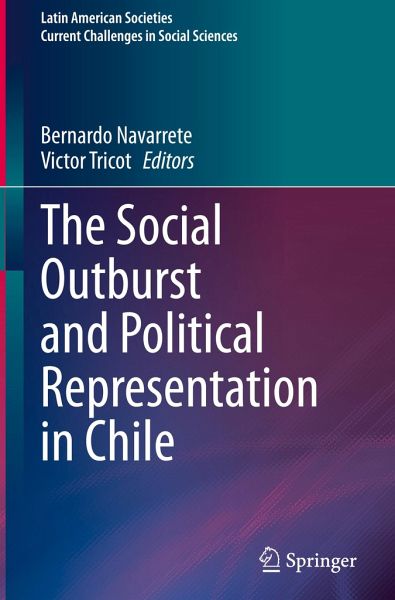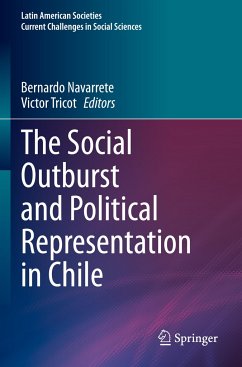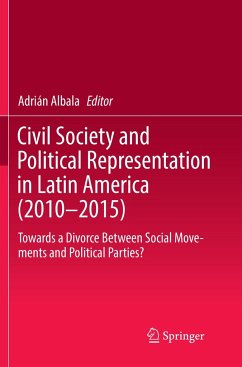
The Social Outburst and Political Representation in Chile

PAYBACK Punkte
0 °P sammeln!
This is the first book in English to present a comprehensive analysis of the October 2019 social outbreak in Chile and its consequences for the country's political system. For almost 30 years (1990-2019), Chile was recognized as a model of political and economic stability in Latin America, but the 2019 protests put into question the whole structure of representation based on programmatic political parties. This contributed volume analyzes the causes of the social outbreak by examining the interaction between political parties and social movements in Chile since 2000, establishing bridges betwe...
This is the first book in English to present a comprehensive analysis of the October 2019 social outbreak in Chile and its consequences for the country's political system. For almost 30 years (1990-2019), Chile was recognized as a model of political and economic stability in Latin America, but the 2019 protests put into question the whole structure of representation based on programmatic political parties. This contributed volume analyzes the causes of the social outbreak by examining the interaction between political parties and social movements in Chile since 2000, establishing bridges between the sociology of social movements and the political science of parties and forms of traditional political representation.
The book is organized in three parts. The first part analyzes the collapse of the political party system in Chile. The second part shows how social movements introduced innovative forms of political mobilization that challenged the traditional forms of politicalrepresentation. Finally, the third part presents case studies focusing on specific social movements and their contributions to the renewal of political representation in Chile.
The Social Outburst and Political Representation in Chile will be a valuable resource for sociologists, political scientists and other social scientists interested in understanding the challenges posed to political parties and institutions by social movements formed by citizens who no longer see themselves represented by the traditional forms political participation.
The book is organized in three parts. The first part analyzes the collapse of the political party system in Chile. The second part shows how social movements introduced innovative forms of political mobilization that challenged the traditional forms of politicalrepresentation. Finally, the third part presents case studies focusing on specific social movements and their contributions to the renewal of political representation in Chile.
The Social Outburst and Political Representation in Chile will be a valuable resource for sociologists, political scientists and other social scientists interested in understanding the challenges posed to political parties and institutions by social movements formed by citizens who no longer see themselves represented by the traditional forms political participation.












